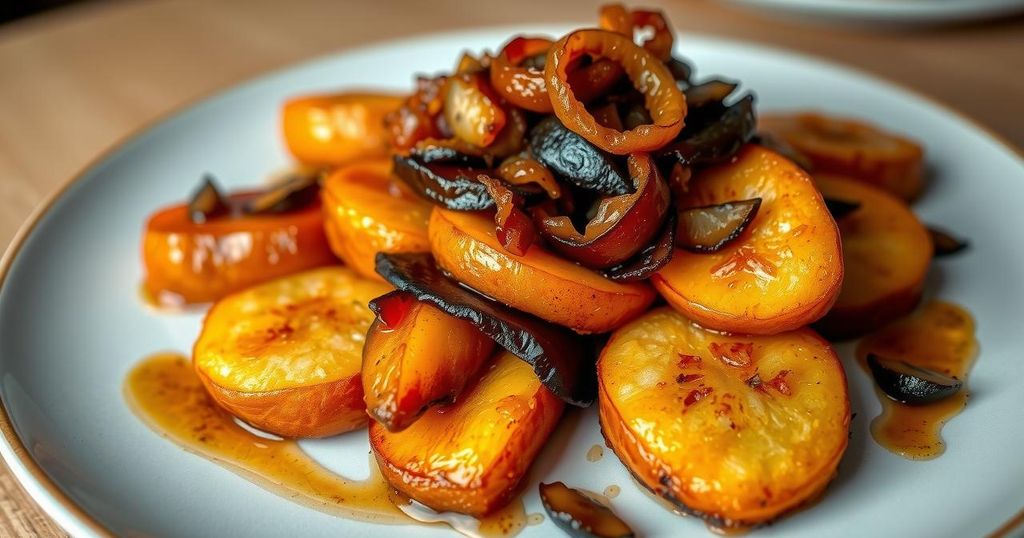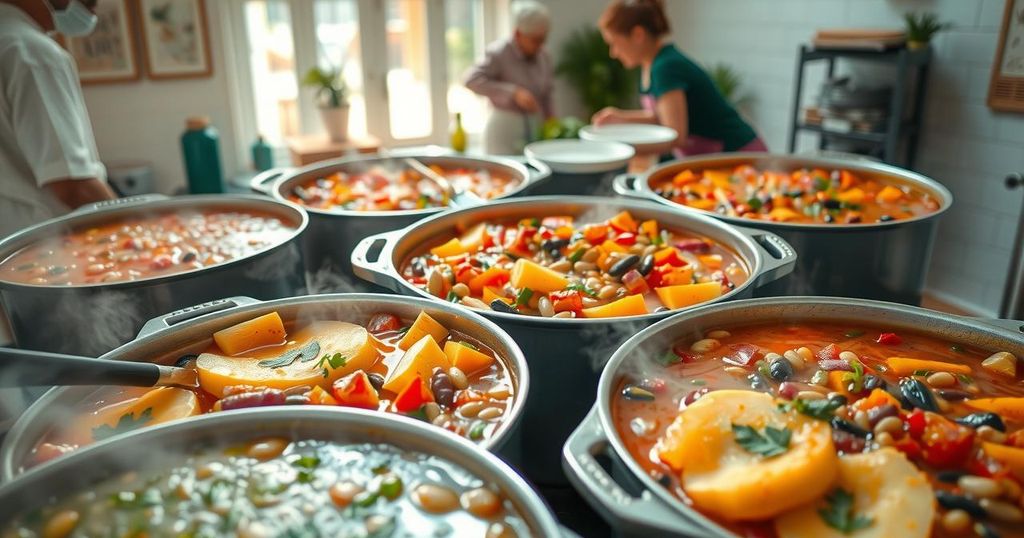Eric Adjepong: Celebrating Ghanaian Heritage Through Culinary Arts
Eric Adjepong, a Ghanaian-American chef and former Top Chef contestant, is set to open a new restaurant, Elmina, and release a cookbook, “Ghana to the World” in 2025. He emphasizes the significance of his cultural heritage in shaping his culinary identity and shares insights on key ingredients and recipes that honor traditional practices while embracing innovation.
Eric Adjepong, recognized for his appearances on two seasons of Top Chef, is embracing his Ghanaian-American identity through his culinary ventures. In 2025, he will launch a new restaurant, Elmina, in Washington, D.C., and release his cookbook titled “Ghana to the World: Recipes and Stories That Look Forward While Honoring the Past.” In recent discussions, he shared insights regarding his cultural heritage and the significance of traditional recipes in his life.
Adjepong attributes much of his worldview to his Ghanaian-American heritage, considering it a cornerstone of his identity. He expresses gratitude for the culinary arts, declaring, “I think there’s such a unique lens that folks from Ghana have with all three of those sort of scopes with food.” Such experiences enrich his approach to fostering connection through food and hospitality, shaped by his upbringing and community support.
Upon discussing his formative years, Adjepong reflects on his time spent in Ghana from ages two to six, detailing vivid memories of play and connection with local culture. Key recollections include cherished toys and interactions with street vendors, which remain foundational to his understanding of identity and cultural essence as he matured.
In describing the essential ingredients for distinct flavors, Adjepong highlights curry powder and peri peri pepper, among others. He notes the importance of warm spices such as cinnamon and nutmeg while sharing a beloved family recipe for a homemade seasoning blend that combines paprika, onion powder, and garlic powder, contributing to a signature taste.
Adjepong expresses fascination with egusi seeds, often used in soups and stews, and even incorporates them in granola. He describes the seeds as earthy and nutritious, emphasizing their fiber content which makes them an economical yet filling addition to meals. His cookbook features traditional uses as well as innovative adaptations of the ingredient.
When discussing the distinctions between fufu and banku, he provides a detailed explanation of their textures and ingredients. Fufu, consisting of cassava and plantains, serves as a versatile accompaniment to dishes, while banku, made from fermented cornmeal, presents a tangy flavor. Adjepong expresses a particular fondness for banku, which is often enjoyed by hand, fostering a direct connection to the food and strengthening cultural ties during the dining experience.
Again reiterating his love for plantains, Adjepong describes a special recipe for sweet fried plantains that he has personalized. By pairing them with benne seed miso, he enhances their inherent sweetness and creates a depth of flavor that exemplifies his culinary innovation. Adjepong’s approach showcases a blend of traditional and modern techniques.
Among his favorite recipes is the stewed turkey wings, a dish he credits to his auntie Agatha. This nostalgic creation involves a careful preparation process accompanied by a rich, flavorful stew. The culinary legacy of his family deeply resonates with Adjepong, making such meals special and encourages him to maintain these connections through food.
Eric Adjepong intricately connects his Ghanaian roots with his culinary artistry, sharing this cultural legacy through his new restaurant and cookbook. His insights into traditional ingredients, cooking techniques, and personal anecdotes reflect a rich tapestry of experiences that resonate within his culinary creations. As Adjepong embarks on new ventures, he continues to honor his past while innovating for the future, enriching the culinary landscape with Ghanaian flavors.
Original Source: www.kcrw.com




Post Comment